The resilience of global innovation ecosystems at IASP Virtual
/Portada_4_1.jpg)
The purpose of innovation, the future of work, global data and the need to collaborate to overcome worldwide challenges: these were some of the key themes to emerge from two days of knowledge sharing at IASP Virtual, IASP’s 38th World Conference on Science Parks and Areas of Innovation.
IASP’s second online conference in our nearly 40 year history, the event was officially opened by Chairman Paul Krutko (Ann Arbor SPARK, USA) after a round of fast paced networking and book presentations from McLean Sibanda and Josep Piqué. He took to the virtual stage alongside CEO Ebba Lund, MC Kjell Lutz to kick off debate around the main theme "Beyond disruptions and resets: The resilience of innovation ecosystems". Nearly 700 delegates from 80 countries signed up for the event, plus some in person gatherings where attendees watched the livestreaming together.
Perspectives on innovation and global data
"Innovation is existential," keynote speaker Darja Isaksson (Vinnova, Sweden) told delegates, emphasising the role innovation ecosystems can play in bringing together government, academia, business and society to make real, lasting change. "We are the last generation with the opportunity to transform every sector, city, and consumption pattern into something sustainable,” she said.
Perspectives from outside our industry at the first ‘Anchoring innovation’ panel reinforced the value of the triple and quadruple helix in innovation and the increasing importance of society. "We can't innovate without knowing what society requires!" agreed panellists Julian David (techUK, UK), Dr. Jan Breitinger (Bertelsmann Stiftung, Germany) and McLean Sibanda (Bigen Group, South Africa). "No one is safe until everyone is safe - we’ve got to make the world safe for all of us, to look at innovation in a way that’s not just about profit but about doing good."
The practitioner panel that followed took a look at the impact of the pandemic on how innovation happens, and how this challenged innovation ecosystems to find new ways of working. Lena Miranda (Linköping Science Park, Sweden), Gavin Poole (Here East, UK) and Albert Wong (Hong Kong Science Park, China) explored everything from working digitally to addressing global challenges together in a way that remains financially viable, to the importance of making a local impact on your community.
Open innovation – and corporate innovation, more specifically, were on the agenda too. “One of first things corporates can learn from startups is how to learn,” said Craig Haney (Communitech, Canada) as he talked to Agustin Moro of Telefonica Connected Open Innovation (Spain). Startups and corporates have different cultures and must understand each other's needs before they can successfully work together, they agreed, and innovation ecosystems can help them create this common language, to avoid “the whale swamping the boat” or “the elephant treading on the gazelle's toes” to quote the vivid images they used to describe the risk of a big corporate sometimes killing off the tiny startups they want to learn from.
The same topic was addressed from within our industry, as IASP members from Spain, India and the USA looked at how innovation ecosystems can be the bridge that helps corporates and startups to connect and work together successfully. While it can be an unequal relationship, if approached in a spirit of collaboration then "It's not exploitation, it's exploration!" agreed Josep M. Pique (La Salle Technova Barcelona), Jitendra Sharma (Andhra Pradesh MedTech Zone) and Carol Stewart (Tech Parks Arizona).
The overall picture that emerged was of innovation ecosystems as organisations that have managed to successfully navigate the disruption and resets of the pandemic, and data gathered from IASP members backed this up. IASP CEO Ebba Lund gave a sneak preview of the findings from our global survey, where the headlines tell a powerful story of resilience and how STPs & AOIs coped with the crisis as connection points in both the physical and digital worlds, and where entrepreneurs want to come back to work on site.
Magic, the future of work and going the extra mile for companies
The second day of IASP Virtual began with a touch of magic from Keelan Leyser, digital illusionist and online magician famous for his tech magic: he amazed some volunteers from the audience with his skills in clairvoyancy and mesmerism!
And he wasn’t the only one predicting the future: panellists Léan Doody (Arup, Ireland) Daria Tataj (Tataj Innovations, Poland) Idoia de Paz (Esade, Spain) shared their ideas about the future of work and how the workplace will evolve in the years ahead. They agreed that nothing can remove the importance of physical space for human beings, even in a digital world, but we need a good interface between physical and digital workplaces, and a built environment with more shared spaces to collaborate with others in a way remote working doesn't offer.
IASP members agreed: "Science parks aren’t really about the buildings – big companies can start from a garage. What they need is the people, the innovative people getting together around the table," said Herbert Chen (TusPark, China) in the second panel exploring the future of the workplace. Together with Mai Louise Agerskov (INCUBA, Denmark) and Jernej Pintar (Ljubljana Technology Park, Slovenia) he discussed the changing face of community building in a digital world, and the ongoing value of infrastructure to fund other activities, and agreed on the importance of meeting other people face to face to build trust and truly three dimensional relationships.
The value of these interpersonal relationships and how STPs/AOIs maintained them under the pandemic came up again in conversation with two resident companies. Sarah Jabir (My Life My Say based at Plexal, Here East, UK) and Siddarth Tiwari (Tiwari Scientific Instruments, based at Berlin Adlershof, Germany) had no doubts about the value of locating their companies in an AOI/STP. "They've taken such a personal interest in us, especially under the pandemic: they went out of their way to check in and offer support and maintain a sense of community," they agreed, mentioning as well the benefits of an inspiring built environment, proximity to other innovative people, and the role of the on site cafeteria in bringing them together!
After a sneak preview of IASP Seville and the announcement of the winners of Inspiring Solutions 2021, it was over to closing keynote speaker and leadership expert Eduardo P Braun (Argentina) to wrap up the content. His focus was also on community, as he reflected on the values that made innovative companies like Pixar so successful, and the importance of building trust and a shared culture. “They realised they had to privilege people over ideas – communities matter, people matter,” he concluded.
IASP Chairman Paul Krutko officially closed IASP Virtual, where we brought together speakers, delegates and exhibitors from more than 80 countries worldwide, as well as video contributions from global members sharing their perspectives on resilience. Our panels repeatedly highlighted the value of human interaction and collaboration, be it in person, virtual, or a blend of both, and we like to think this online World Conference offered delegates the opportunity to connect and get to know each other, even if we couldn’t meet face to face.
Thank you to everybody who joined us, and we look forward to seeing you in person in 2022 in Seville, Spain for IASP Seville!
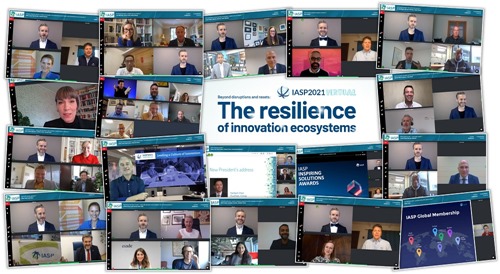
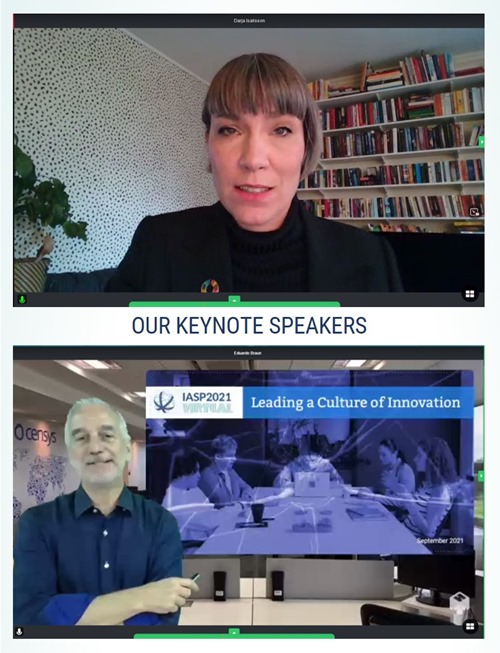
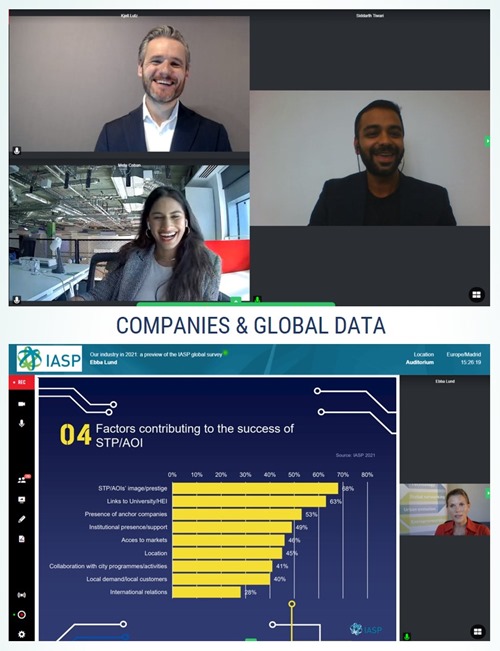
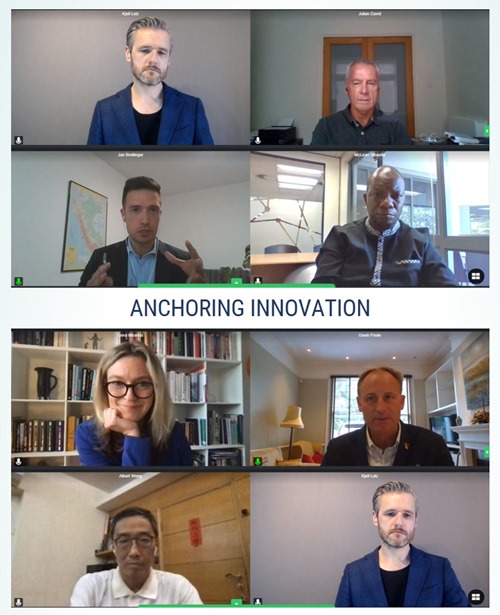
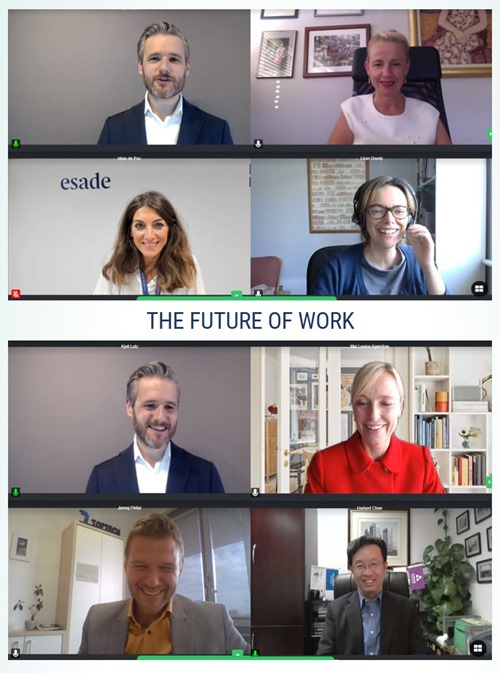
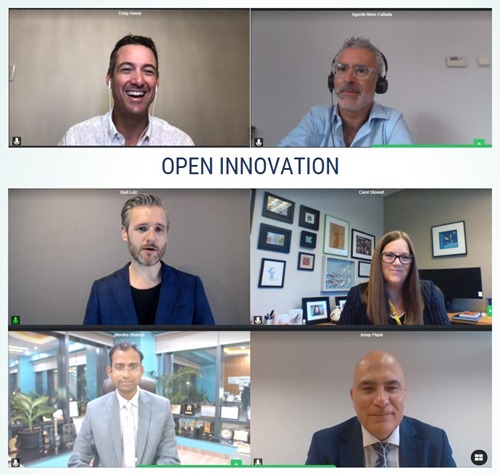
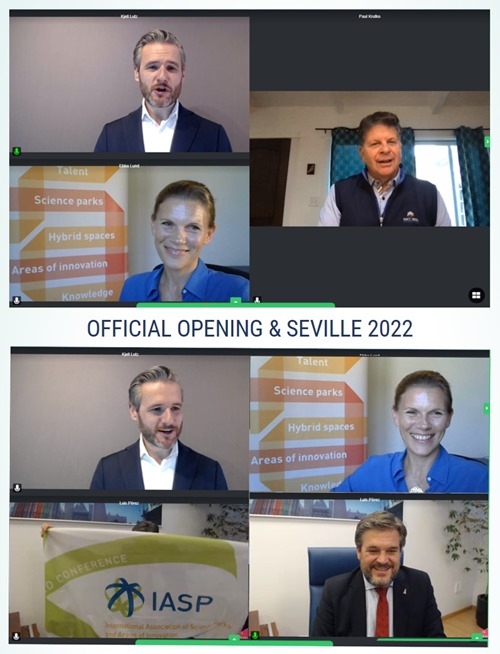

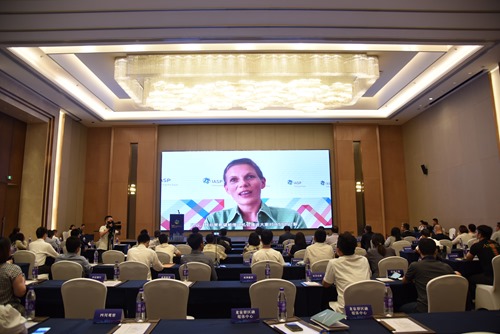
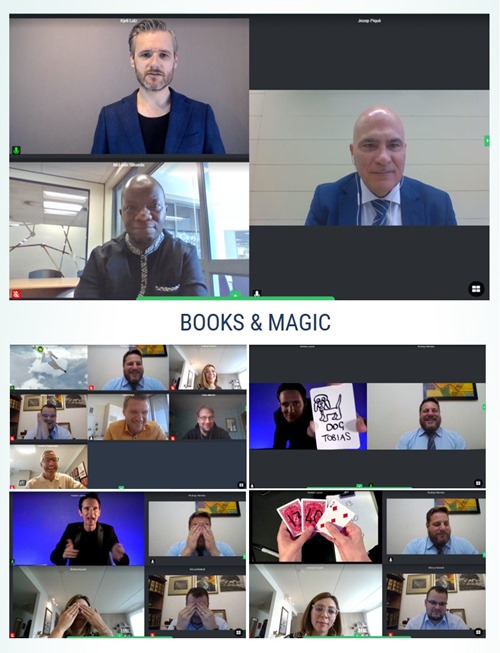
/)

/canvascolor(0xffffffff)/MemberLogo-59301-6100.jpg)
/canvascolor(0xffffffff)/2017_10_23_Iran_Pardis_Technology_Park.png)
/canvascolor(0xffffffff)/2017_10_30_Singapore_Singapore_SP.jpg.png)
/canvascolor(0xffffffff)/zone_logo_rgb_3_1.jpg)
/canvascolor(0xffffffff)/Logo_biopark_200x200_3.jpg)
/canvascolor(0xffffffff)/2019_08_30_UK_Here_East.jpg)
/canvascolor(0xffffffff)/HIPB_Logo_2.jpg)
/canvascolor(0xffffffff)/MemberLogo-43501-149701.jpg)
/canvascolor(0xffffffff)/ODTU_TEKNOKENT_logo_2016.png)
/canvascolor(0xffffffff)/GEP_Logo-01_transparant_(1)_6.png)
/canvascolor(0xffffffff)/acronimo_nombre3l_6.jpg)
/canvascolor(0xffffffff)/2025_06_27_Sweden_Skelleftea_Science_City.png)
/canvascolor(0xffffffff)/OPENZONE_1.jpg)
/canvascolor(0xffffffff)/2019_11_12_China_Tuspark_(Jiangsu).png)
/canvascolor(0xffffffff)/Clipboard-2.jpg)
/canvascolor(0xffffffff)/2017_08_04_Gararia.png)
/canvascolor(0xffffffff)/NSTP_Logo-1_(002).png)
/canvascolor(0xffffffff)/InnoPark.png)
/canvascolor(0xffffffff)/Logo_ZEDE_Color_1.jpg)
/canvascolor(0xffffffff)/2021_01_26_Spain_PCT_Bizkaia.png)
/canvascolor(0xffffffff)/2025_09_16_Sweden_Medeon_SP.png)
/canvascolor(0xffffffff)/Identificador_Visual.png)
/canvascolor(0xffffffff)/2020_09_09_Sweden_Luleea_SP.png)
/canvascolor(0xffffffff)/rs_ystp-logo-en-high-02.png)
/canvascolor(0xffffffff)/2020_10_09_Spain_Geolit.jpg)
